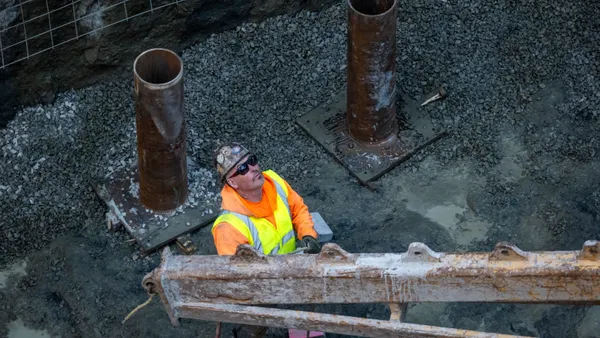The Senate's approval Thursday of a bill that would force construction of the Keystone XL pipeline seems straightforward. But what the chamber really did was take another step in an elaborate dance that could—in theory, anyway—lead to a presidential veto and his ultimate approval of the project.
The 62-36 vote sends the measure on to the House, which can pass the bill or vote on its own version and send that to a conference committee. The latter action would lead to another round of votes in both chambers, and more opportunities for sound bite politics on the longstanding issue.
The White House has made it clear for some time about where it stands on having a decision dictated to it by Congress. Environmental debate aside, the Obama administration believes the decision lies in the hands of the executive branch alone because the pipeline crosses international borders. Meanwhile, the White House awaits a years-long administrative review of the project through various government agencies, but the final parts of that review appear to be finally coming to an end.
The president intends "to allow the well-established administrative process to be carried out, and that will allow experts in the field of the environment and of energy policy to carefully examine the route of the pipeline, the potential impact it could have on communities that are along that route, and to determine whether or not it’s in the national interest," White House Press Secretary Josh Earnest told reporters Thursday. Earnest reiterated the administration's longstanding position that any must-build bill out of Congress would be vetoed.
But behind that promise are more subtle moves that are being played out. The Republican-controlled Congress can use the legislative process to slow down, speed up or just dangle the Keystone legislation, based on the political interests of members at any given time.
For example, Republican leaders could decide to push the measure and force the president's hand now if it desires, which might make some constituents and campaign donors happy. Congress could attach Keystone language to a must-sign piece of legislation, a bit of congressional leverage that has been used many times. It could also wait until the president says whether he ultimately backs or opposes the pipeline on its merits—and if Obama makes the latter decision, try to force it on the White House anyway.
“The Keystone infrastructure project has been studied endlessly, from almost every possible angle, and the same general conclusion keeps becoming clear: build it," Senate Majority Leader Mitch McConnell of Kentucky said Thursday in a statement. "So let's make some progress for the American people by voting to pass the Keystone jobs and infrastructure bill."
Meanwhile, interests on all sides—including environmental groups firmly opposed to the pipeline—are pushing Obama to get off the dime. "I'll bet your lunch he'll reject it," Michael Brune, executive director of the Sierra Club, told The New York Times this week.
But even if the president chooses that route, the debate—and quite possibly the legislative action—will not be finished.










